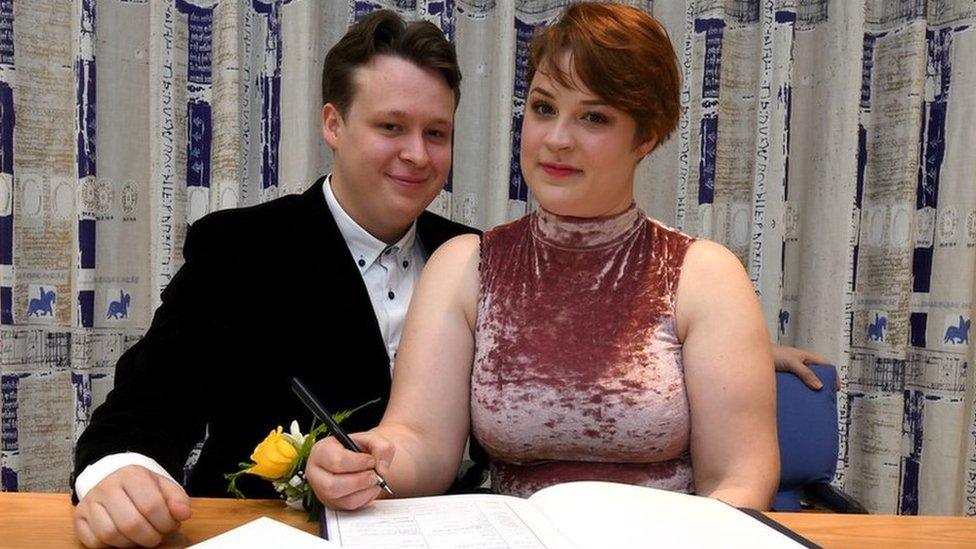Civil partnerships: Couples tell us why they want one
- Published
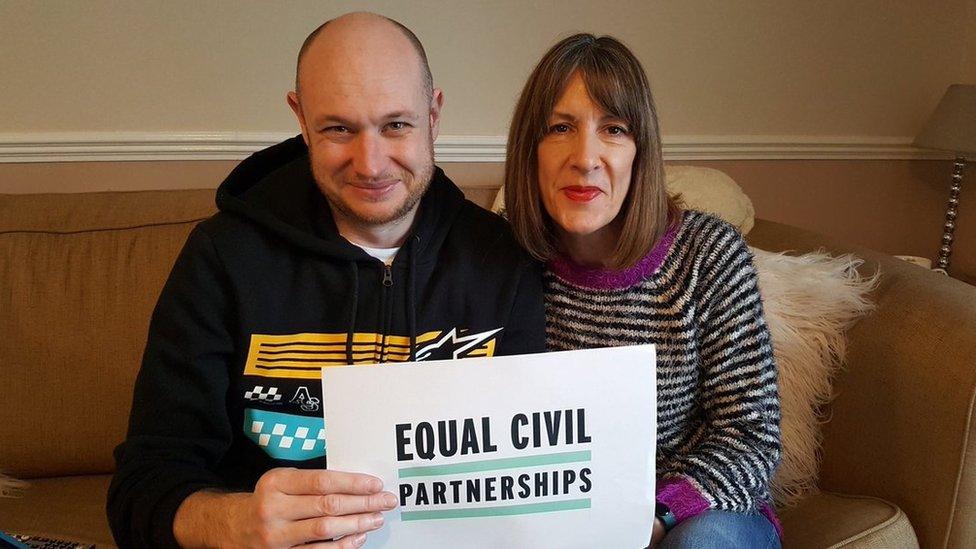
James Thrussell and Dee Harvey: "Marriage is still very much a patriarchal system"
Heterosexual couples might be able to access civil partnerships, as the government reviews the law that currently only applies to homosexual couples.
Tory MP Tim Loughton had proposed to amend the existing law to include all couples. It is now being reviewed by the government.
If the law is scrapped, it could result in equality being achieved by making civil partnerships available for everyone.
Ahead of the review, we spoke to four couples about why they prefer a civil partnership over a marriage, and why it matters to them that their relationships receive legal recognition.
Dee and James, Oxfordshire
Dee Harvey, in her 50s, and James Thrussell, in his 30s, say their main concern is that Dee's final salary pension will only be given to a spouse or civil partner.
The two have been together for 11 years, they have a joint mortgage and are expecting to become grandparents through Dee's son.
Without a civil partnership, Dee and James's relationship does not have the same legal and financial standing as that of a married couple.
The couple believes marriage as an institution does not reflect their equal relationship.
"We don't want to 'take each other as husband and wife'", Dee says, "marriage is still very much a patriarchal system. Having to put your father's name and occupation on the marriage certificate, but not your mother's, is one example."
She adds: "We are not anti-marriage - my parents have been happily married for 62 years - it is just not right for us."
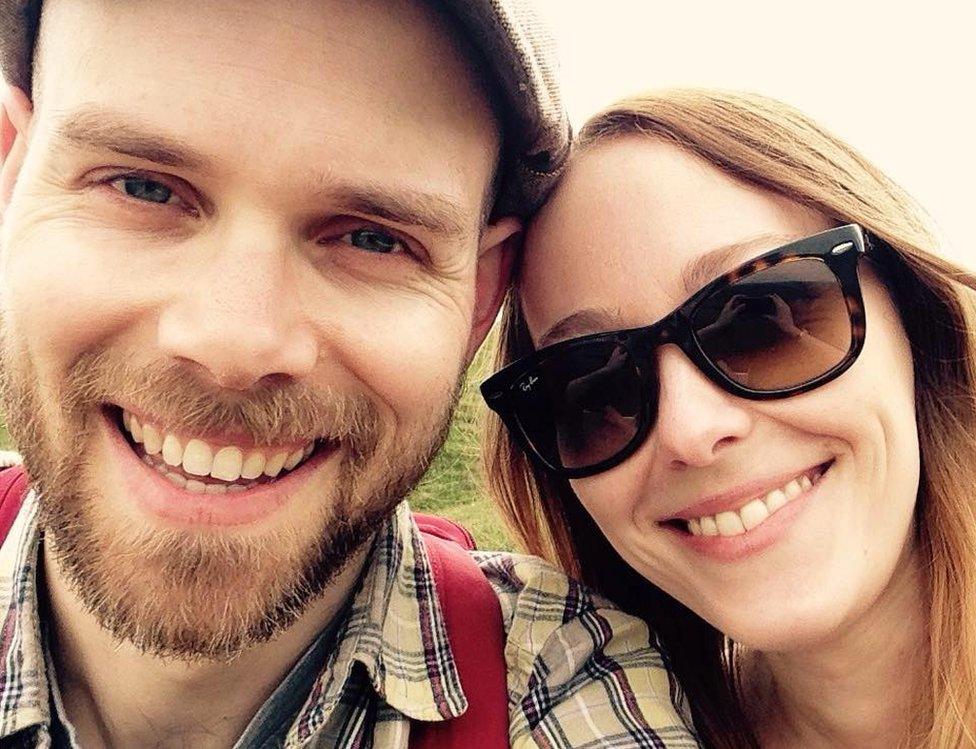
Ben and Amy, London
Amy Grant and Ben Piggott, both in their 30s, want to be seen as each other's next of kin, but do not want the traditional arrangements of marriage. Ben says: "We want to avoid any of the expectations and baggage that can often be associated with marriage."
The couple have been together for five years and have bought a house.
"We are increasingly concerned about our lack of legal protection. This includes lack of certainty around next of kin and inheritance. We are also not benefitting from things like tax allowances," says Ben.
"Neither of us ever envisaged getting married -- it wasn't something we had thought much about or prioritised."
They plan on having a Jurassic Park-themed civil partnership celebration.
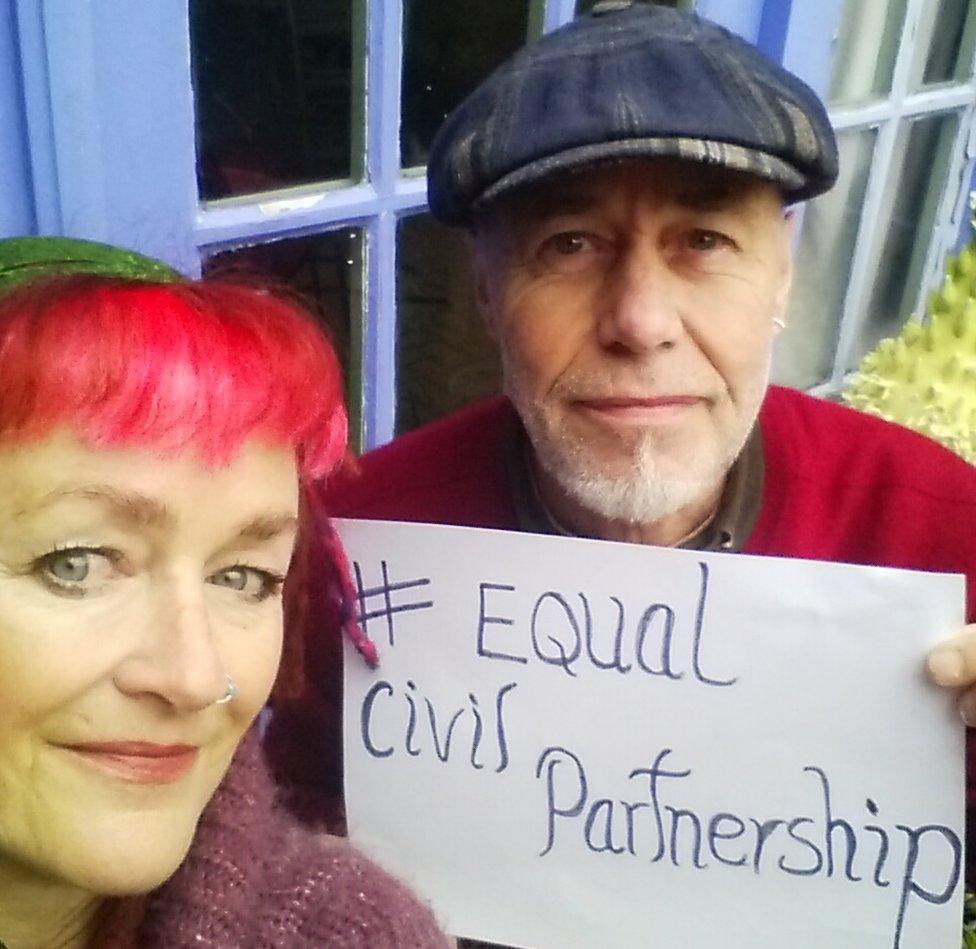
"We feel we are a partnership and just want that recognised"
Frances and Henry, Brighton
Living between France and Brighton means that Frances Doherty and Henry Penter, in their 50s, face uncertainty when it comes to their inheritance rights.
As neither of them wants to become a permanent resident of France, they do not qualify for the country's PACS - a civil union contract giving similar, but not entirely the same, rights as marriage.
Due to this lack of legal recognition in the UK or France, the couple would not automatically inherit each other's wealth.
Having been together for 30 years, Frances says: "We also want to be each other's next of kin. We know each other and would be able to make decisions for each other in the future, if necessary, but this needs to be recognised by law."
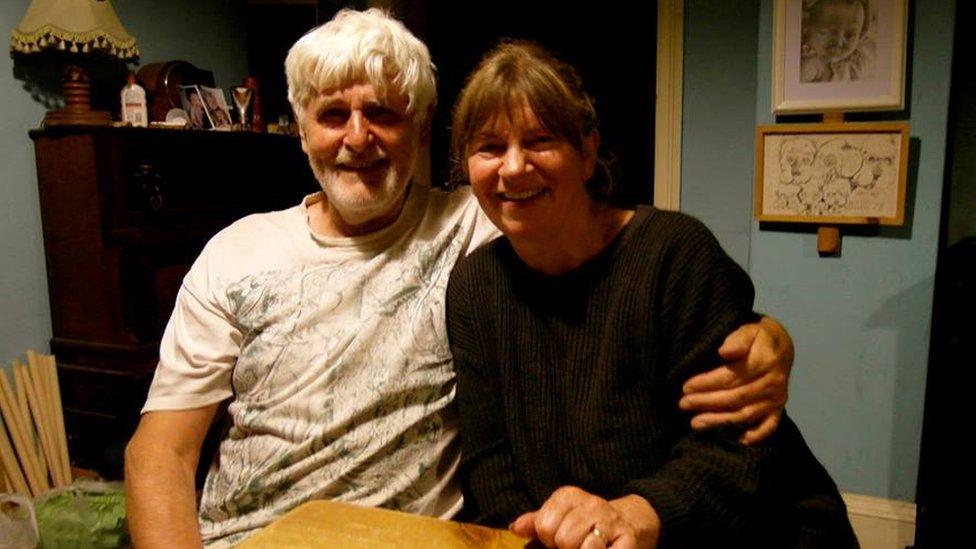
Paul Metsers and Pauline Brocklehurst say the current system is "grossly unfair"
Paul and Pauline, Kendal
Paul Metsers and Pauline Brocklehurst are concerned about his future in the UK post-Brexit without the security of a legal relationship, as he is a dual citizen of The Netherlands and New Zealand.
The couple wrote to their MP to complain that the lack of recognition for their relationship is a form of discrimination.
"We are being discriminated against because we are not married and not gay either, so as heterosexuals we are denied the legal rights of a civil partnership," says Pauline, who calls the current arrangement "grossly unfair".
Paul and Pauline have lived together for 38 years and have three children. They have both been married before and do not wish to do it again.
The couple refute the idea that only married couples stay committed to each other.
They said: "Married couples can and do split up within months! There is no magic cement in that institution and it is insulting to many [people] in our multicultural society."
- Published2 February 2018

- Published1 February 2018
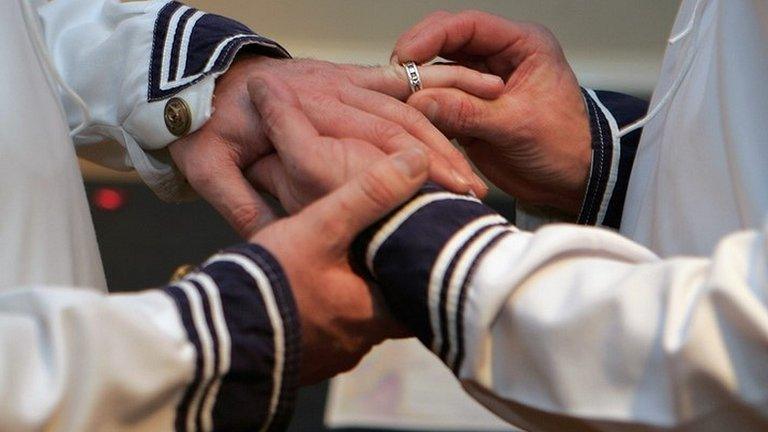
- Published2 November 2016
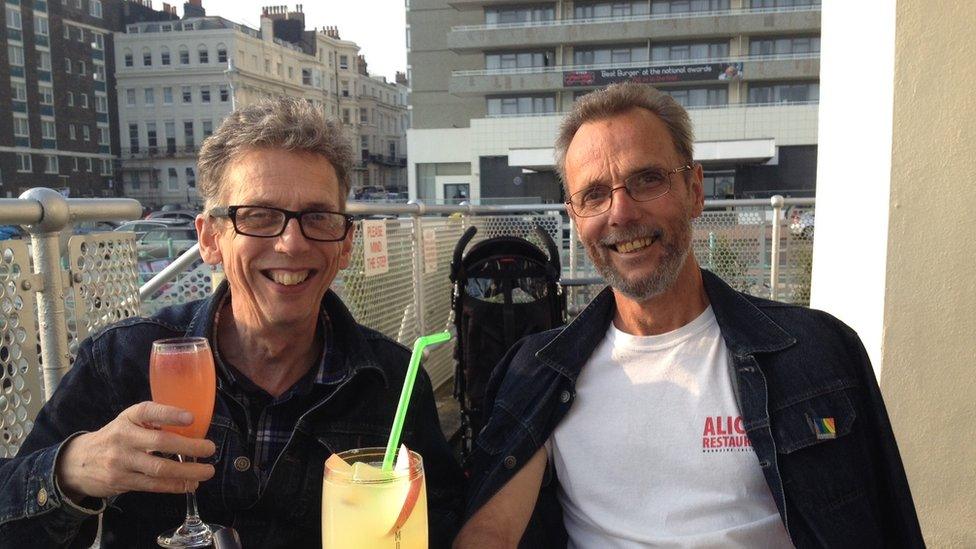
- Published22 August 2017
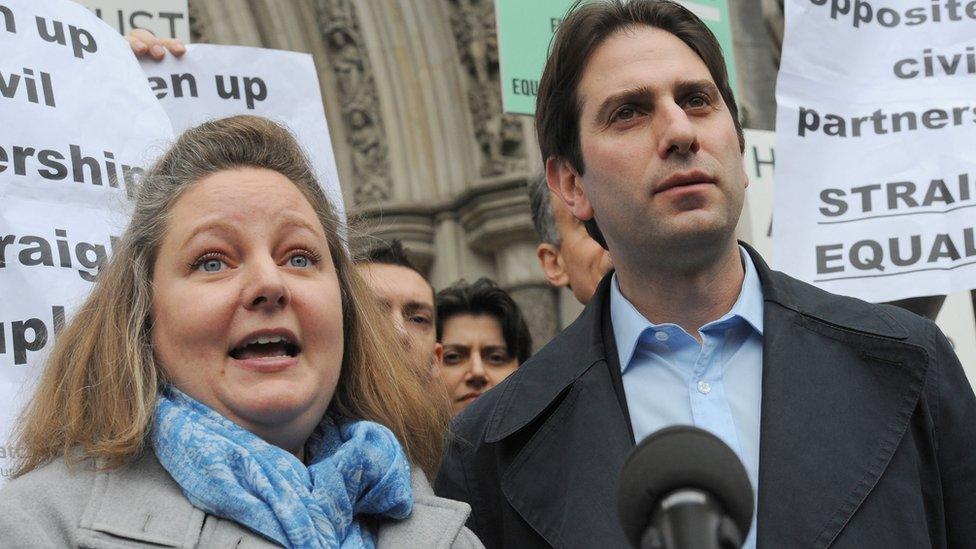
- Published14 October 2016
